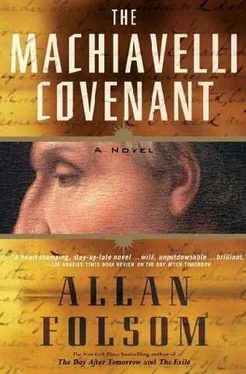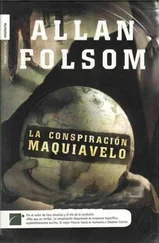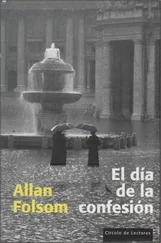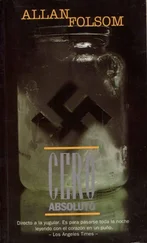"You said she's in Switzerland."
"Her name is Rebecca, she works as governess to the children of a wealthy family in a town near Geneva," Marten half-smiled. "Someday I'll tell you her story. It's something else."
The president studied him for a long moment. "Come to Auschwitz. I'll keep you out of camera range. I promise. Afterward you can go home."
"I-" Marten was hesitant.
"Cousin, you were there step by step. You saw everything that I did. If I start to falter or have doubts about what I'm saying I'll look at you and remember the truth."
"I don't understand."
"I'm going to say some things that diplomatically might be better left unsaid, all the while knowing the reaction around the world might and probably will be ugly. But I'm going to say them anyway because I think we've reached a point in time where the people elected to serve need to tell the truth to the people who elected them, whether they like what they hear or not. None of us anywhere can afford to go on with politics as usual," the president paused. "I'm not one man alone, Nicholas. Come with me, please. I want-I need-your presence, your moral support."
"It's that important."
"Yes, it's that important."
Marten smiled, "And you'll write me the note saying I missed work because I was saving the world."
"You can frame it."
"And then I can go home?"
"And then we can all go home."
• HOTEL VICTORIA WARSAW. WARSAW, POLAND. 6:20 A.M.
"Hello, Victor. Did you sleep well? Have you had breakfast?"
Victor turned off the television, then took his cell phone and began to pace the room in his boxer shorts. "Yes, Richard, at five thirty. I didn't sleep at all. You didn't call last night as you promised. I didn't know what had happened. I was afraid something had gone wrong."
"I'm sorry, Victor, I apologize. Things have been a little hectic. That's why I was delayed in getting to you. There's been a change in our agenda."
"What change? What's going on?" The paranoia that had been working on Victor for hours shot through him. Suddenly they had reservations, he knew it. At the last minute they were concerned about his ability and decided to bring in someone else. Richard was going to fire him just like that. Tell him to go home. Then what? He had no money; they had paid for everything. He didn't even have plane fare back to the States.
"Victor, are you still there?"
"Yes, Richard, I am. What is this-this," he paused, terrified to say it, "change of agenda? You want me to leave Warsaw, don't you?"
"Yes."
"Why? I can do it. You know I can do it. I did the man in Washington. I did the jockeys, didn't I? Who else can shoot like that? Who else, Richard, tell me! No, let me tell you. No one, that's who. No one is as good as I am."
"Victor, Victor. Calm down. I have all the faith in the world in you. Yes I want you to leave Warsaw, but it's for the change of plan I was talking about. You don't need to worry. Everything is in order. When you get there, everything will be ready for you as always."
Victor let out a breath, then suddenly stood straighter, prouder. He felt better. "Where am I going?"
"It's a short train ride, less than three hours."
"First class?"
"Of course. Train number 13412 for Krakow. You will depart at 8:05 this morning and arrive at 10:54. Go directly to the taxi area and look for cab number 7121. The driver will have further instructions and take you the rest of the way, about a forty-minute ride."
"Forty-minute ride to where?"
"Auschwitz."
• AUSCHWITZ, POLAND, 11:40 P.M.
Surrounded by security and followed all the way by a dozen camera crews, the tall, somber, and distinguished president of Poland, Roman Janicki, led the twenty-six heads of NATO member countries through the grim corridors of the former World War II Nazi death camp.
Outside under a gray sky they had passed beneath Auschwitz's infamous welcoming gates and its wrought-iron sign emblazoned with the motto Arbeit Macht Frei, Work Shall Make You Free. Afterward Janicki had taken them past the weed-covered, rusting tracks arriving trains had used to deposit the estimated one and a half to four million Jews who were exterminated here and at nearby camps, most notably Auschwitz II and Birkenau. Moments later they walked in silence past the stilled gas chambers and the crematory, with its furnaces and iron body carts. Past the remains of the wooden barracks that housed prisoners overseen by the camp's horrific Nazi guards, the dreaded Schutzstaffel, the SS.
Toupee on, cosmetic glasses removed, dressed in a dark blue suit, and with Hap Daniels at his side, fully recognizable as president of the United States, John Henry Harris walked side by side with the chancellor of Germany, Anna Bohlen, and French president, Jacques Géroux, his thoughts on the speech he would make while standing on a hastily constructed platform outside what remained of the rows of former prisoners' barracks.
• 11:50 P.M.
A taxi drove past a fenced-in area containing a sea of media satellite trucks and up to the press gate. The door opened and a middle-aged man wearing a suit and tie got out, then the taxi pulled away.
Immediately he went to the highly secured press gate, where a dozen heavily armed Polish army commandos waited with members of the Polish and U.S. Secret Services.
"Victor Young, Associated Press. My name is on your list," Victor said calmly and produced an AP identification card and his United States passport.
A USSS special agent examined both IDs and handed them to a uniformed woman in a bulletproof glass enclosure. She took them, matched them against a list, then pressed a button and took his picture.
"Alright," she nodded and handed the IDs back along with the appropriate security press tag which Victor put around his neck.
"Hands over your head, please?" another special agent said and Victor complied. Another moment and he had been patted down for weapons.
"Go ahead, sir."
"Thank you," Victor said and unmolested went inside.
In a way he amazed himself. How terribly nervous and upset he always was when he waited for Richard to call, and how calm and easygoing he was when he was face-to-face with the enemy. Of course they knew that; along with his excellent marksmanship, it was the reason they had recruited him and stayed with him.
• 11:52 P.M.
Nicholas Marten stood back watching as the hour drew closer to one o'clock, the scheduled time of the president's speech. Everywhere were representatives of the world press. Equally impressive was the number of invited guests who jostled with security details for space in front of the long platformlike dais where world leaders would gather to hear the president speak.
His speech, as White House Press Secretary Dick Greene had informed the press corps earlier, would be, among other things, an explanation of the last minute shift of venue from Warsaw to Auschwitz and an elaboration on the "terrorist threat" that had seen him removed from his hotel in Madrid by the Secret Service in the middle of the night and taken to the "undisclosed location" where he had been until earlier today.
The fact that his speech would be carried live worldwide by all of the major broadcast organizations, coupled with the promise of getting the facts on the past days from the president himself, both intrigued and frightened, and put an already anxious world further on edge. In addition, something else made the moment even more immediate and compelling. Earlier that morning the president had called for "a special session of Congress" to be convened at 7:00 A.M. Washington time, where a live telecast of the Auschwitz proceedings would be shown on a large-screen television. The special session, the early hour, and the fact that what the president would say couldn't wait until he returned to Washington added a level of urgency to everything.
Читать дальше












